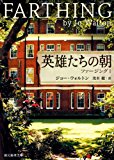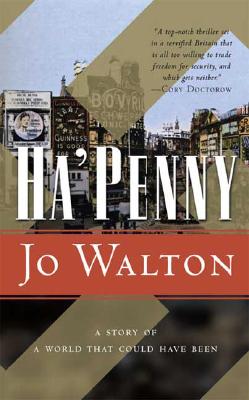Kate Elliott posted an interesting piece saying that SF has a finite knowable universe and fantasy an infinite and unknowable one,
That’s actually really close to my instinctive definition of SF, made up to exclude Christopher Priest’s early work which was making my head explode at the time: “In SF, it all makes sense in the end.” No matter how weird and inexplicable, you have to trust the author that it will all be explained.
However, there’s a shortage of fantasy where it also doesn’t. Oh, there’s magic, but most fantasy magic is pretty explicable and pretty easily reduced to rules too. Even in the Dunsany-influenced strand of fantasy, it’s really a whole lot like “what if the medieval imagination of magic was real”.
I was talking about this on rasfw once, fantasy which isn’t Tolkien’s “history, true or feigned” but which is set in real sense-of-wonder fantasy universes — we had Dean’s The Dubious Hills, Lisa Goldstein’s Summer King, Winter Fool (where the religious service on the solstice doesn’t work and the nights keep getting shorter), and Richard Garfinkle’s Celestial Matters. This was a few years ago, there may have been more since, or more we didn’t think of.
And I’ve thought of another one, Ted Chiang’s “72 Letters”.
And Turtledove’s brilliant story “Secret Names”.
Any more, anyone?
Then Sarah Monette has an interesting post, to which I commented:
I think there’s a defended border between fantasy and SF, which has Darkover and Pern and Star Wars lined up along it, bristling with guns, and stepping across it leads to loud explosions and bright lights, magic and spaceships! But I think there’s also an undefended border where fantasy is quietly doing SFnal things.
I like your original idea, that you have different kinds of characters in fantasy universes from SF universes, and hence different kinds of stories arising from those different kinds of characters. I think that’s a productive insight. I’ve been thinking about that. It’s made me think of the possibility of a story where the hero’s tragic flaw is that he is mindset-wise from a fantasy universe, whereas he’s living in an SF one — and I don’t mean like Pham in A Deepness in the Sky or Vanye in The Chronicles of Morgaine which are the closest I can think of this being done.
And to go on from that:
Ignoring marketing conventions and talking only about ways of writing, I’ve been known to say that everything about writing is character. (Description is part of character. World is part of character. Plot is part of character…) In that sense, taking Sarah’s original post about the characters, if you consider fantasy and SF together as ways of writing about people who are not people from this world, whose axioms are not of this world, defining world as “set of cultural assumptions”, then they do indeed have a lot in common. But they also have distinct differences at a fundamental level which doesn’t have to do with technology or magic or anything but to do with how empty the sky is for the character.
In the post-Enlightenment universe of SF, the sky might be full of starships and orbitals and ringworlds and space stations, but for the character whose universe this is, it’s just another place you can go. It’s empty of agency.
For the fantasy character the sky might be empty of everything but clouds and a passing hawk, but it is wholly and poignantly full of agency. As Ted Chiang says (put link here) this is often easier in low tech societies where everything seems to have more agency, but you can have it anywhere. That agency might be destiny, gods, magic, dark lords or dryads, which I’ll sum up as “the numinous”, which fantasy is all about approaching.
Now by sky here, I mean part of the interior landscape of the character’s world. The sky is the axiom about the sky in the character’s head, and the way the writer reflects that in the reality of the fiction. (I keep clarifying things here to the point where I’m afraid it’s getting, as Delany says, opaque with clarity.)
There’s the thing I was talking about above where I mentioned Pham and Vanye (together in a sentence for the second time ever) which is more often done the other way around. It’s quite commonplace to take a character from our world or an otherwise post-enlightenment SF world, and put them somewhere where magic works. They generally poke at it and accept it. (Stross’s The Family Trade does some lovely poking.) Donaldson actually does this inside-out tragic-flaw thing in the Covenant books. I’m not sure how well it works, but it’s certainly what he’s doing.
Doing it the other way around, the character would be deluded — or, as in Turtledove’s “Secret Names” it would suddenly become fantasy. “Secret Names” works because it’s really short and really delightful, you couldn’t do that at length I don’t think. The character would be deluded because we privilege reality. Magic doesn’t exist, as Jeff Vandermeer’s monkey keeps saying. (Starships don’t exist either, but they don’t exist in quite a different way.) Magic, in the real world we’re sitting in, only works inside people’s heads.
A lot of fantasy is doing pretty rigorous SF worldbuilding on “what if certain ideas about magic were real” and “If they were real what would they mean to people?”
When I think about what I do myself, I start from the characters. I build the world from their assumptions. I’ve written six fantasy novels (and published four) in four different worlds. Every one of them started from the characters and their assumptions about the world and went outwards, with magic and religion being awfully close together — except Tooth and Claw where I started from Trollope’s characters and axioms and made them real for dragons. But the sky is empty in that world. The closest it comes to the numinous is a hillside on which the stones do not move around — and that’s a perfectly real hillside near Llandovery, and I promise, the stones really don’t move around.



